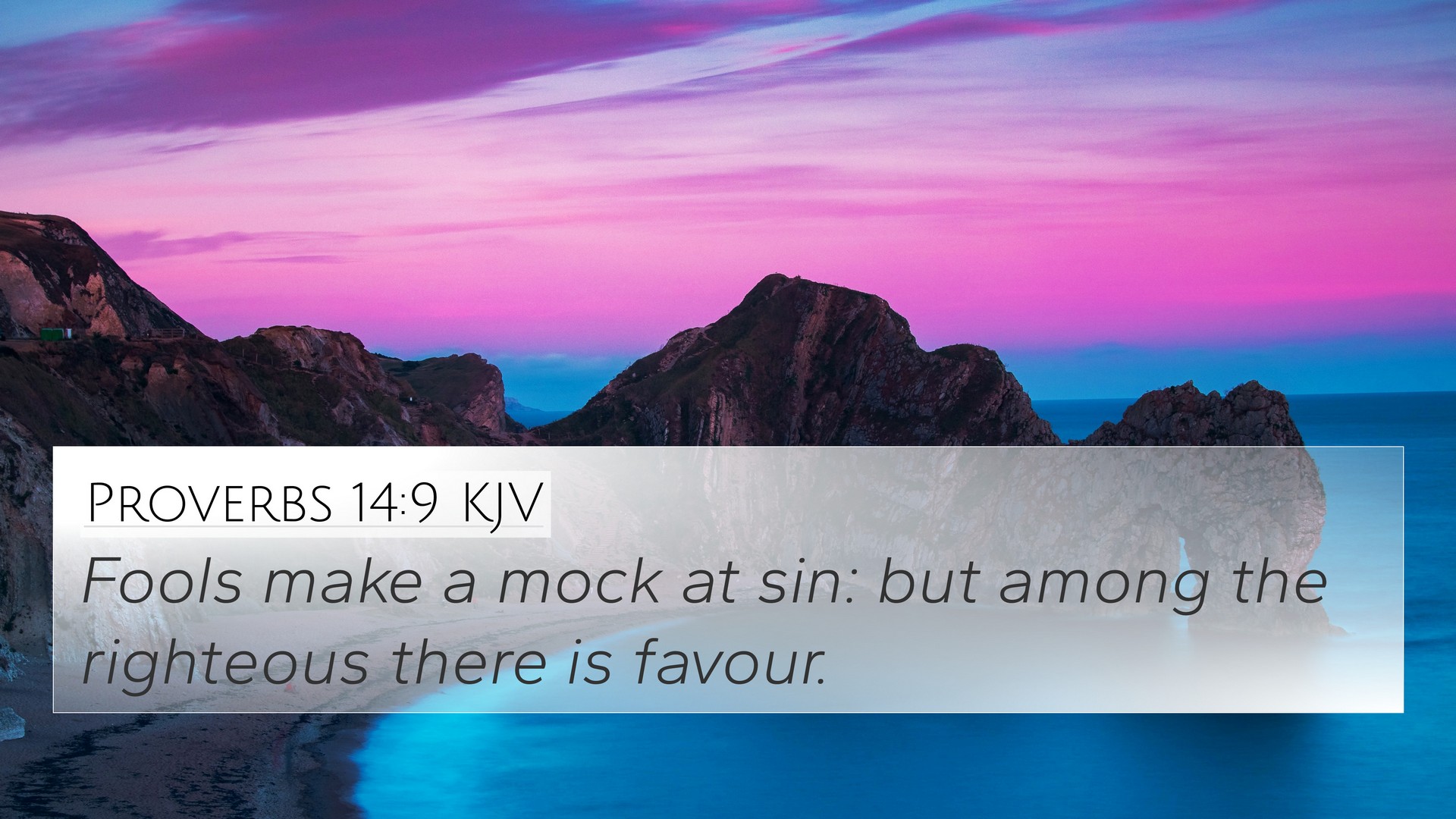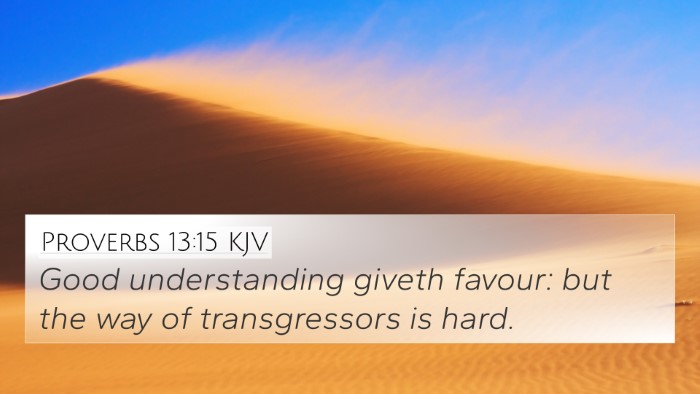Understanding Proverbs 14:9
Proverbs 14:9 states, "Fools make a mock at sin: but among the righteous there is favour." This passage offers profound insights into the nature of foolishness and righteousness, embodying essential themes in biblical wisdom literature.
Summary of the Verse
This verse contrasts the attitudes of fools and the righteous toward sin. Fools, characterized by their disregard for moral principles, engage in mockery, showing no reverence for wrongdoing. In contrast, the righteous—those who align their lives according to God's commandments—experience divine favor. This juxtaposition highlights the consequences of one's attitude towards sin.
Commentary Insights
- Matthew Henry: He emphasizes that mockery of sin stems from an absence of fear and understanding of God's judgment. Fools dismiss the seriousness of sin, believing it to be trivial, while the righteous recognize the gravity of sin and strive to avoid it.
- Albert Barnes: Barnes explains that the "righteous" refer to those who seek to please God, and their favor is indicative of God's grace upon their lives. He notes that the righteous are wise, showing discernment in understanding the nature of sin and its impact on their relationship with God.
- Adam Clarke: Clarke discusses how mockery arises from pride and ignorance in sin. He elaborates on the idea that the righteous find joy in God’s favor, which is in stark contrast to the bleakness surrounding a fool. Clarke urges readers to take sin seriously, acknowledging its potential consequences.
Cross-References
To deepen the understanding of Proverbs 14:9, we can look at several related scriptures:
- Ecclesiastes 8:11: "Because the sentence against an evil deed is not executed speedily, the heart of the children of man is fully set to do evil.”
- Psalm 119:53: "Hot indignation seizes me because of the wicked, who forsake your law."
- Galatians 6:7: "Do not be deceived: God is not mocked, for whatever one sows, that will he also reap."
- Romans 1:32: "Though they know God's decree that those who practice such things deserve to die, they not only do them but give approval to those who practice them."
- Proverbs 10:23: "Doing wickedness is like sport to a fool, but wise conduct is pleasure to a man of understanding."
- Proverbs 13:19: "A desire fulfilled is sweet to the soul, but to turn away from evil is an abomination to fools."
- Isaiah 5:20: "Woe to those who call evil good and good evil, who put darkness for light and light for darkness."
Thematic Connections
Proverbs 14:9 invites exploration of various thematic connections within the Bible, emphasizing the importance of recognizing sin, the futility of mockery, and the favor of God:
- Mockery vs. Reverence: The contrast between the fool who mocks and the righteous who respect sin’s consequences highlights a recurring theme throughout scripture: the importance of living with integrity and fear of God.
- Righteousness and Favor: The linkage between righteousness and God's favor is rooted in the understanding that those who align with God’s will are rewarded, a theme echoed in several other passages across both Testaments.
- Consequences of Sin: This verse encourages believers to take sin seriously and understand its implications, resonating with teachings in the New Testament about grace and sin's consequences (e.g., Romans 6:23).
Tools for Bible Cross-Referencing
Understanding the connections between Bible verses can be enhanced through various tools:
- Bible Concordance: An essential resource for finding keywords and phrases related to your study.
- Bible Cross-Reference Guide: A systematic approach to exploring linked scripture passages.
- Cross-Reference Bible Study: Techniques and methods to delve into thematic studies and textual relationships.
Application and Reflection
To fully grasp Proverbs 14:9's meaning, one must reflect on personal attitudes toward sin:
- How do we view sin? Are we mockers like fools, or do we seek to honor God?
- In what ways can we align ourselves with the righteous to experience God’s favor?
- What practical steps can we take to avoid the pitfalls of mockery and pride in our spiritual walks?
Conclusion
Proverbs 14:9 serves as a profound reminder of the importance of recognizing sin and understanding the fruit of righteousness. By contemplating the linked messages throughout scripture, believers can gain deeper insights into the nature of their faith and the significance of their choices. Through tools for cross-referencing and interpreting these biblical themes, one can enrich their spiritual journey and foster a better understanding of God's Word.














